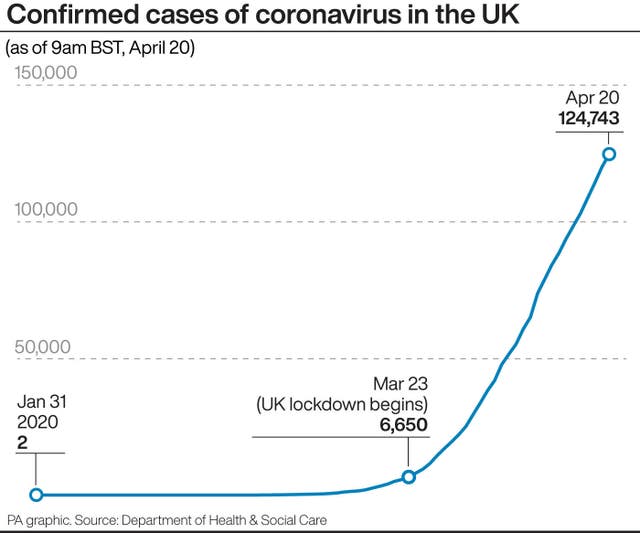NHS face mask supply ‘could be put at risk’ if public advised to wear them
NHS Providers has urged the Government to ‘fully assess’ the impact any new advice could have on health service supplies.

The NHS’s supply of face masks could be jeopardised if the Government begins advising the public to wear them, hospital bosses have warned.
Scientific advisers for the Government are carrying out a review of the use of face masks, despite the World Health Organisation (WHO) saying there is no evidence to support their use by the general population.
Chris Hopson, chief executive of NHS Providers, which represents hospitals and NHS trusts in England, has urged the Government to “fully assess” the impact any new advice could have on health service supplies.
In a statement on Monday, he said: “Fluid repellent masks for health and care staff are key to safety and to avoid the spread of coronavirus.
“Securing the supply of masks, when there is huge global demand, is crucial. This must be a key consideration for Government.
“There needs to be clear evidence that wearing masks, along with other measures, will deliver significant enough benefits to take us out of lockdown to potentially jeopardise NHS mask supply.”
It comes as a group of medics called on people to make their own face masks to stop the spread of coronavirus.
Masks4All suggested homemade masks could slow the spread of Covid-19
The campaign group was started in the Czech Republic, but now has a global following. More than 100 UK medics have lent support to the campaign.
The WHO said people who are not in health and care facilities should only wear masks if they are sick or caring for those who are ill.
Dr Helen Davison told the Daily Telegraph the group is “advocating the use of cloth masks as a precautionary principle” and that it had been inspired by action taken in other countries “that have introduced face masks at population level”.

“There is currently no evidence that wearing a mask (whether medical or other types) by healthy persons in the wider community setting, including universal community masking, can prevent them from infection with respiratory viruses.”
It warned that the use of masks by the public can create a “false sense of security” and lead to people ignoring other protective measures, such as hand hygiene and physical distancing.
Masks can even be a source of infection when not used correctly, the WHO added.
Prof Babak Javid, consultant in infectious diseases at Cambridge University Hospitals, told the PA news agency that “population mask wearing should be an important part of the response to Covid”.
He added: “Once Covid cases are largely suppressed, we can stop wearing masks, their incremental gain will be low. But now, to really benefit from masks, the majority of us need to wear masks.”





